- Home
- entertainment
- news
- 14 photos that show how 'WandaVision' looks without visual effects
14 photos that show how 'WandaVision' looks without visual effects
Olivia Singh

- Warning: There are major spoilers ahead for "WandaVision."
- Marvel released the first episode of its new documentary-style series called "Assembled."
- The show gave a behind-the-scenes look at the making of "WandaVision."
A week after the explosive season one finale of "WandaVision," Marvel is giving fans a behind-the-scenes look at how the hit series came together.
"WandaVision" was the focus of the first episode of Marvel Studios' "Assembled," a documentary-style series, released on Friday on Disney Plus.
The episode gave fans insight into how stars Elizabeth Olsen, Paul Bettany, and more made the decades-spanning show with the help of visual effects.
Here's how 14 scenes from "WandaVision" look without special effects.
Vision dipped Wanda while dancing with her in the opening credits of the season premiere.
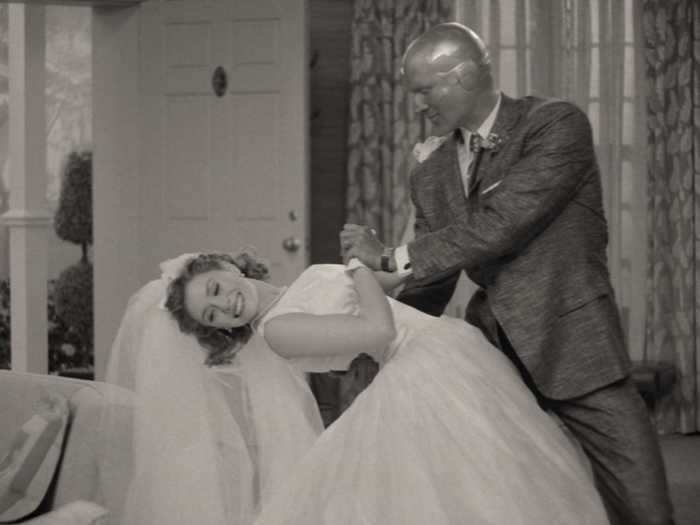
Award-winning duo Robert Lopez and Kristen Anderson-Lopez created every song for the opening credits of the decade-specific episodes.
Bettany's face was painted blue for the filming of the black-and-white episodes.
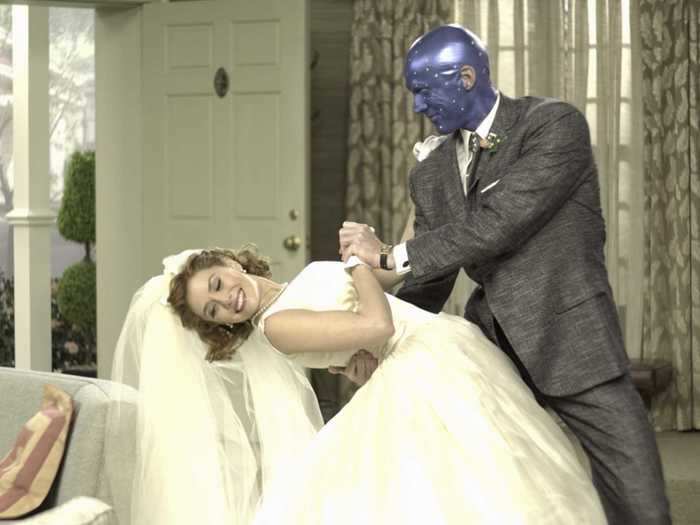
In keeping with the technology of the '50s and '60s, the first two episodes of "WandaVision" were filmed in black-and-white, rather than color.
Bettany was painted blue because that color translated better in the grayscale than his signature maroon.
The actor was fully transformed into the synthezoid using VFX that added details, like the metal parts of his face.
Here's a closer look at the newlyweds sitting on the couch near the end of the episode.
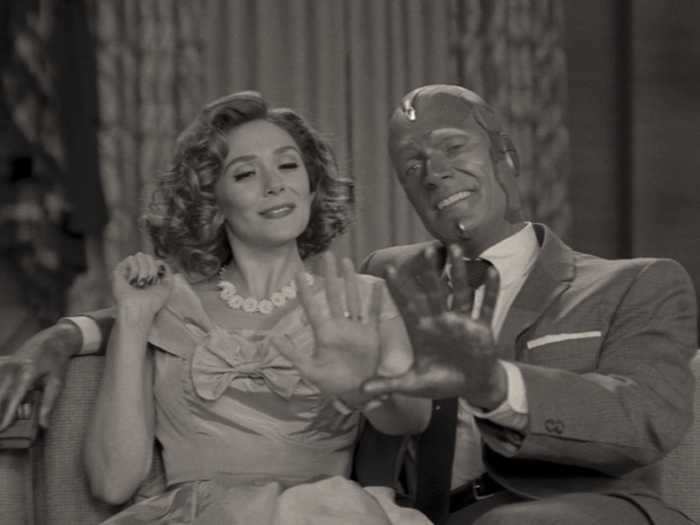
Wanda and Vision admired their wedding rings.
In reality, dots were placed on Bettany's face and used to track his movements.
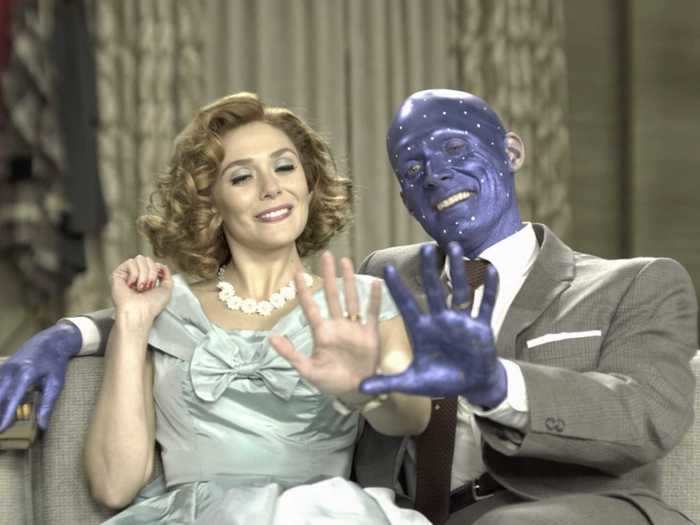
This allowed the "WandaVision" crew to add the details of Vision's body via CGI.
On "Assembled," Jen Underdahl, the vice president of visual effects, said that in the '50s and '60s, actors would wear blue lipstick so that their lips would appear red on camera. The same approach was used when finding the right shade of blue for Bettany, which was later digitally enhanced.
Wanda lost control while trying to make dinner.
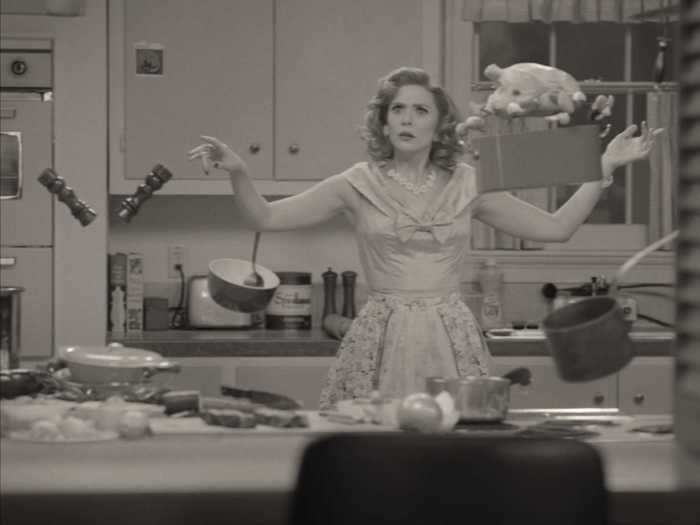
Her powers resulted in the food, utensils, and kitchen appliances floating around her.
Wires were used to give the impression that Wanda's magic was at play.
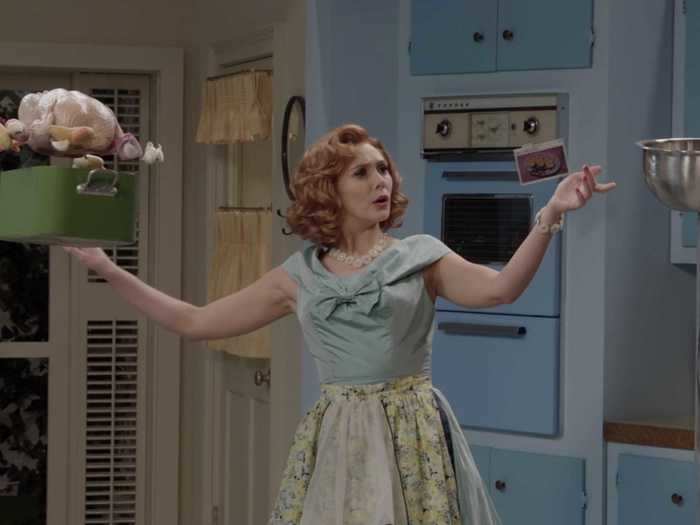
Such techniques were used on the set of "Bewitched," one of the classic sitcoms that served as inspiration for the show.
On "Assembled," director Matt Shakman said that it was important to them to be as authentic to the eras, which is why they used older special effects for these types of scenes.
Episode five showed Wanda exiting the hex and confronting S.W.O.R.D.
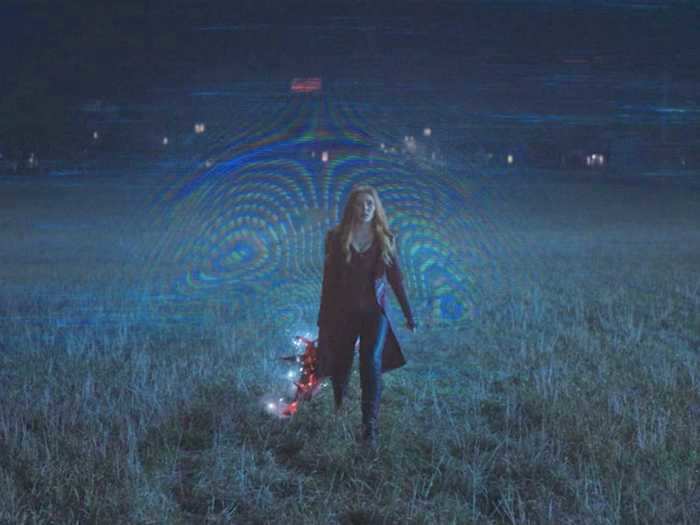
Wanda was angry with Tyler Hayward after he ordered his agents to shoot her with an armed drone that infiltrated her hex.
Wanda's hex was created using visual effects.
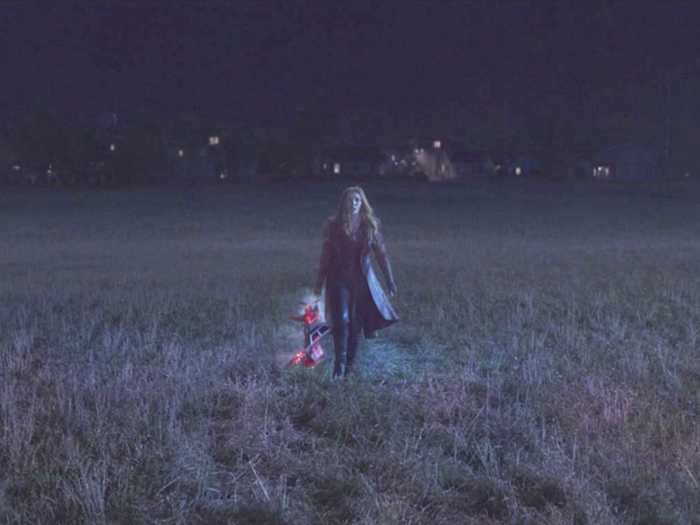
In behind-the-scenes footage, Olsen was seen standing on a field with plenty of open space.
On "Assembled," Tara DeMarco, a visual effects supervisor, said that the crew's goal was for Wanda's hex to emulate the "language of television." That's why the barrier was reminiscent of TV static.
Evan Peters' fake Pietro appeared during the opening credits of episode six.
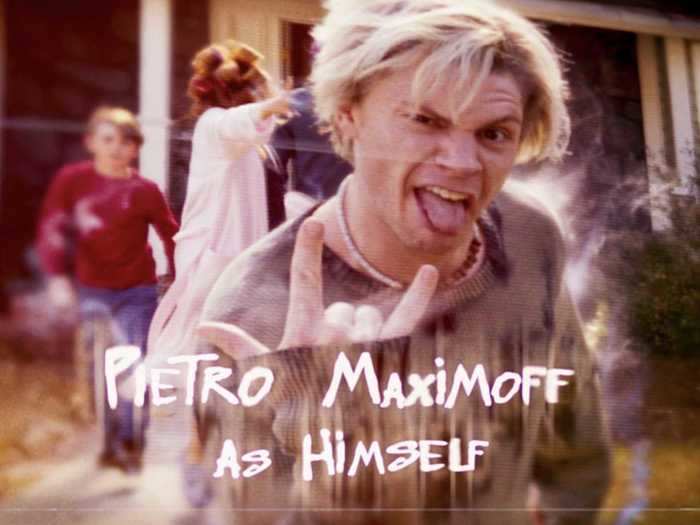
The theme song and style of the credits were inspired by "Malcolm in the Middle," the sitcom that starred Bryan Cranston and Frankie Muniz.
Obviously, no super-speed was used when Peters filmed his segment for the opening credits.
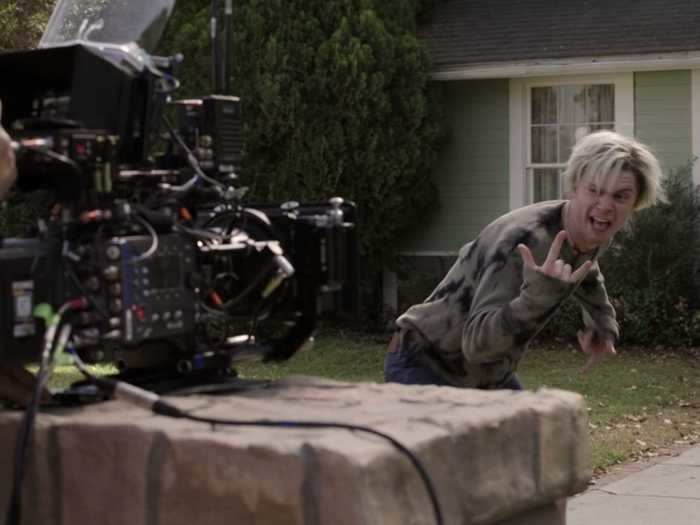
Many fans thought that Peters' character was the same Quicksilver that he played in the "X-Men" movies. But the season finale revealed that he was just a random Westview resident named Ralph Bohner, who was under Agatha's mind control.
On episode seven, Vision and Darcy teamed up to figure out what was going on in Westview.
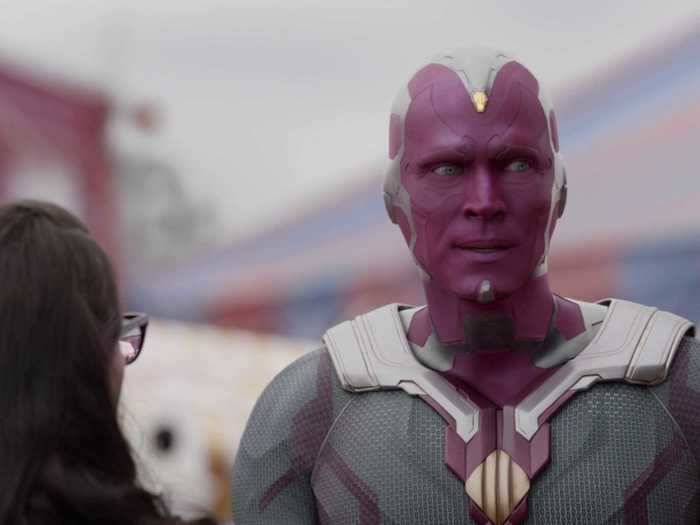
They escaped the circus by stealing a funnel cake truck and driving away.
Bettany's entire face was painted maroon once "WandaVision" began filming in color.
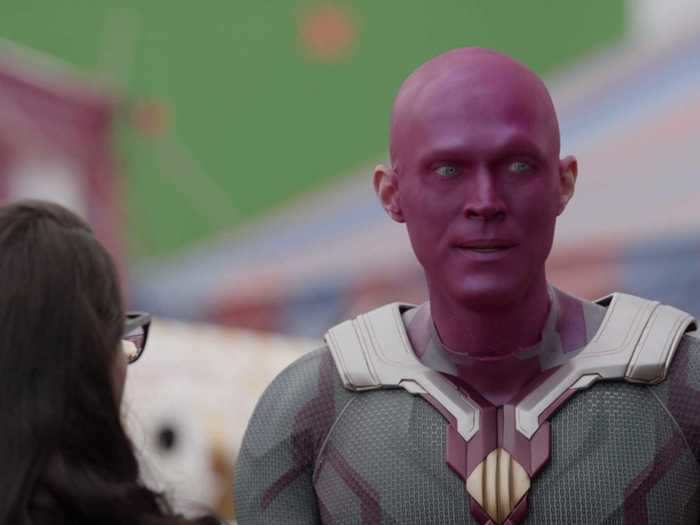
As you can see, facial elements like the Mind Stone weren't originally part of his look when filming.
Wanda learned of Agnes' true identity as a centuries-old witch named Agatha Harkness after wandering into her basement.
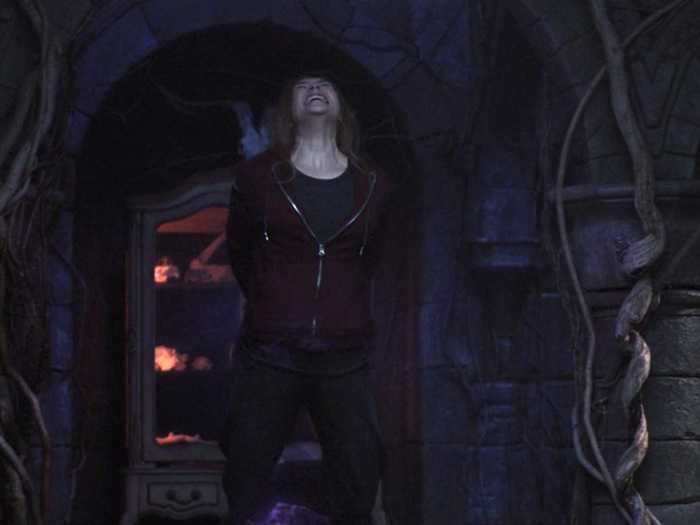
Agatha, played by Kathryn Hahn, tied up Wanda in the air using her dark magic.
Olsen was attached to a harness while filming the scene.
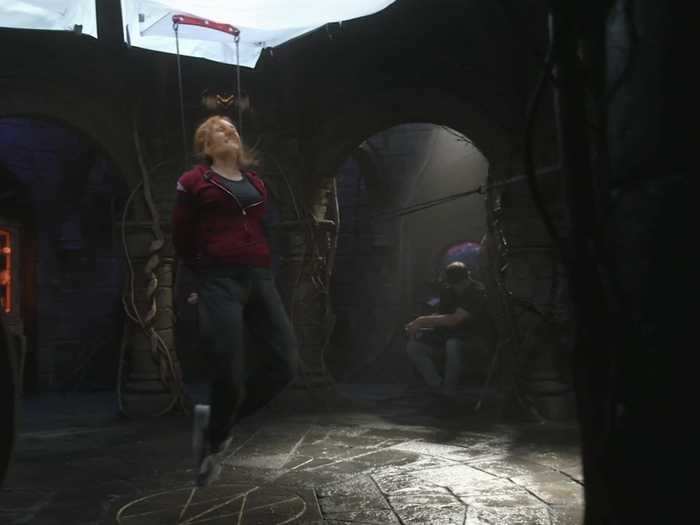
On the episode, Agatha controlled Wanda and flung her through the room using her magic. In reality, the system Olsen was attached to moved forward and back to achieve that effect. Agatha's purple-hued magic was added in using visual effects.
At the end of episode eight and the start of episode nine, Agatha held Wanda's twins hostage.
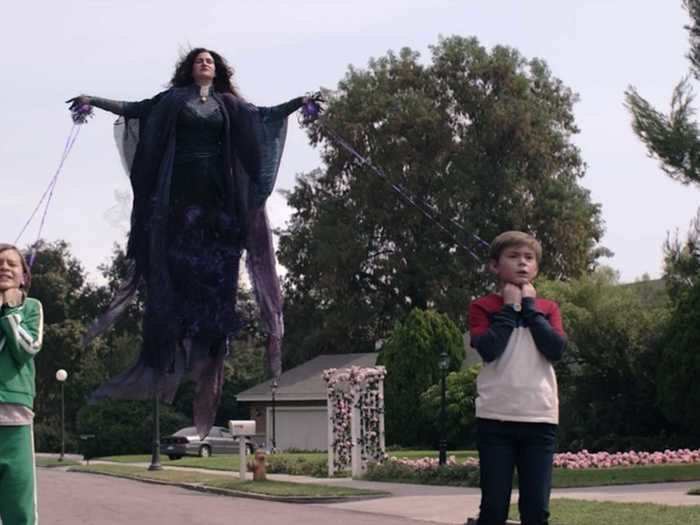
There were major hints all season long that indicated Hahn was playing the comic book character.
Hahn was suspended in the air using wires.
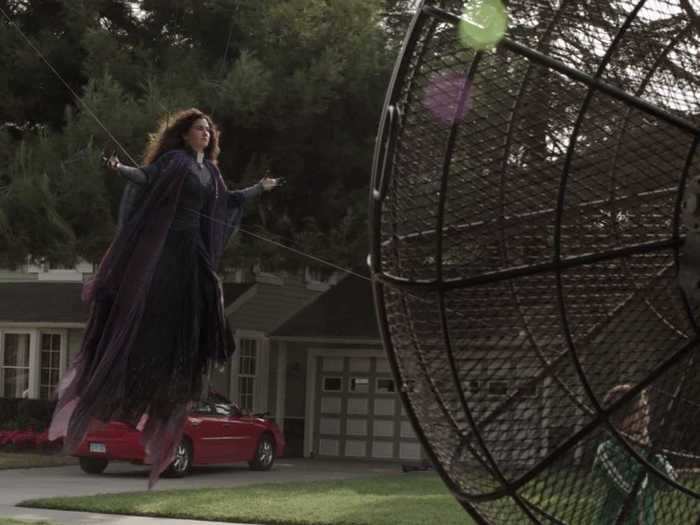
As seen on "Assembled," a fan was placed off-camera and directed at Hahn so her hair could dramatically move as she levitated. All wires connected to Hahn and the actors playing the twins were digitally removed.
Vision intervened when the antagonistic White Vision attacked Wanda.
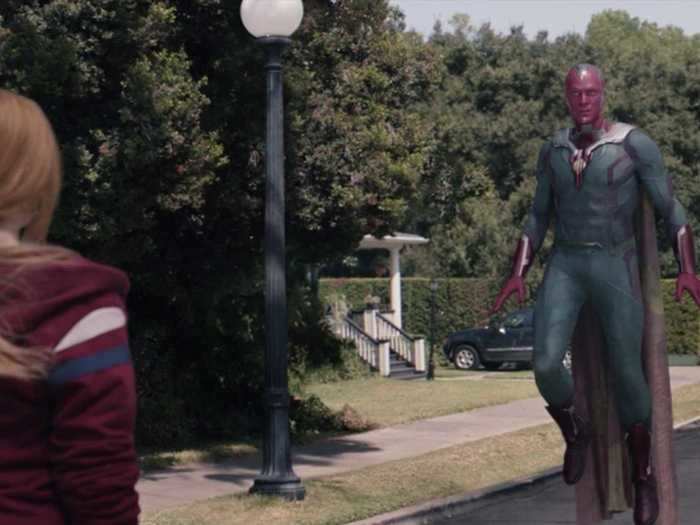
Wanda assured Vision that she could fix the mess she created within her hex.
Many wires were attached to Bettany so he could look as though he was flying.
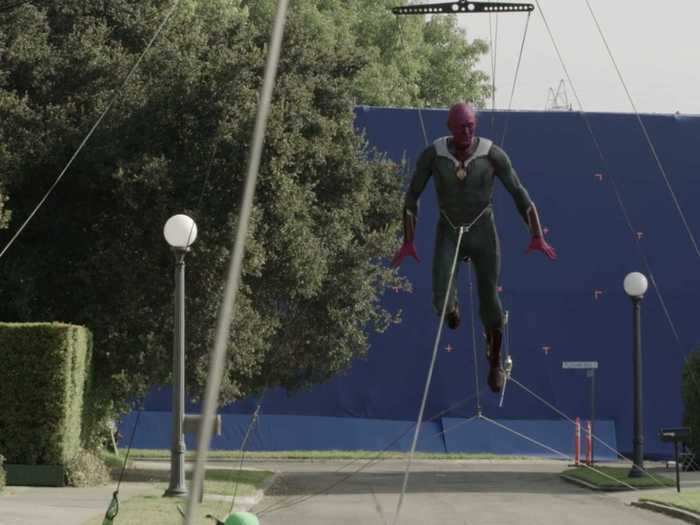
There was also a blue screen behind him, which allowed the crew to digitally add in the rest of the neighborhood block.
Angry Westview residents confronted Wanda about trapping them in her hex.
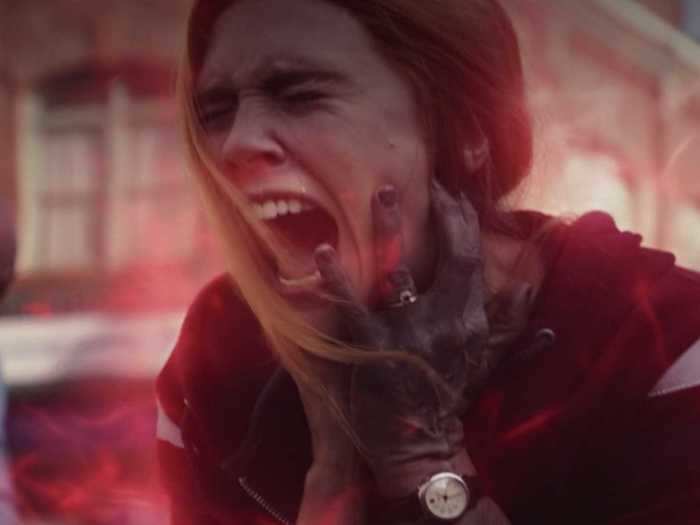
They begged Wanda to release them.
Wanda's red-hued magic was added via visual effects.
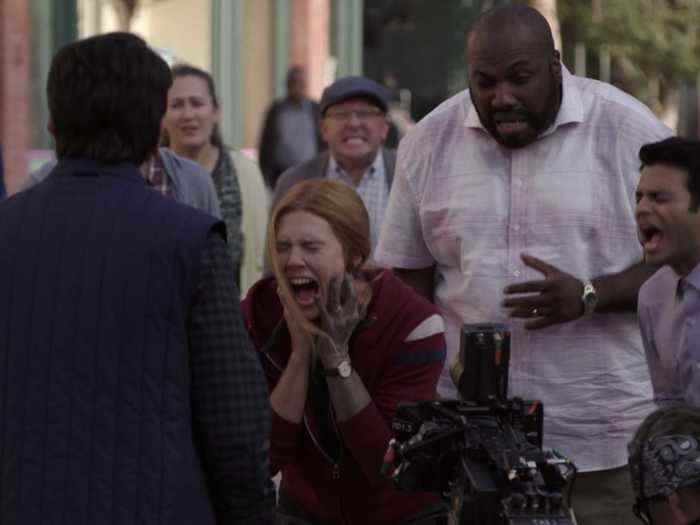
"WandaVision" creator Jac Schaeffer told Entertainment Weekly that originally, the scene had "more of a physical attack" from the people. But because the finale was filmed during the pandemic, they tweaked it.
Wanda's version of Vision and Hayward's replica fought each other during the finale.
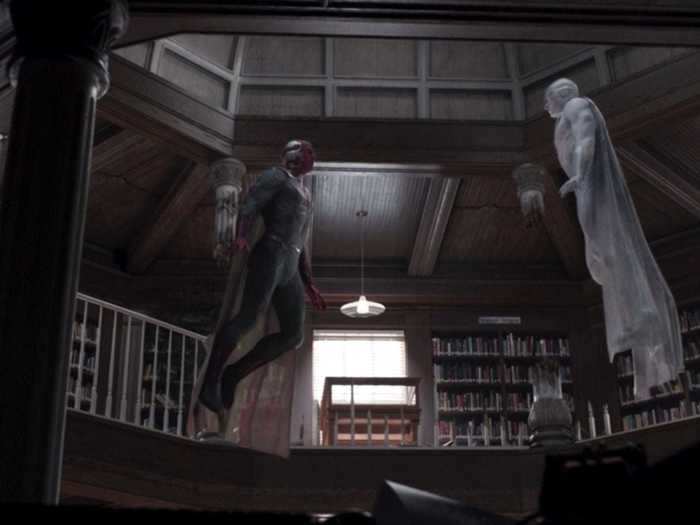
This was the major cameo that Bettany teased, which ultimately turned out to be a joke because the big guest star was actually himself playing two roles.
Bettany filmed the scene in the Westview Public Library with a stunt man.
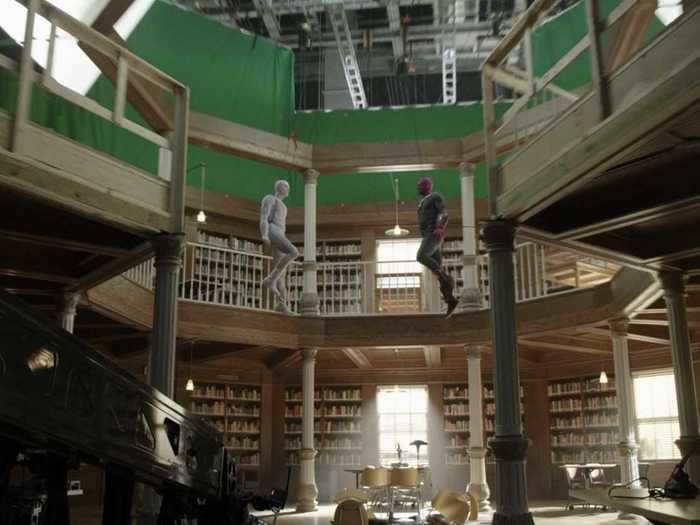
In an interview with Marvel.com, Bettany said that he had to learn the dialogue for Wanda's Vision and White Vision, in addition to taking turns filming as each character.
"I would come in one day and I would be Vision or The Vision," he said. "Then Adam [Lytle], my stunt guy, would play Vision. And he learned all of the dialogue and for both parts — he was brilliant. We would play the scene like that."
"It was more confusing than I had sort of allotted," the actor added.
Wanda and Agatha had an intense showdown in the sky during the finale.
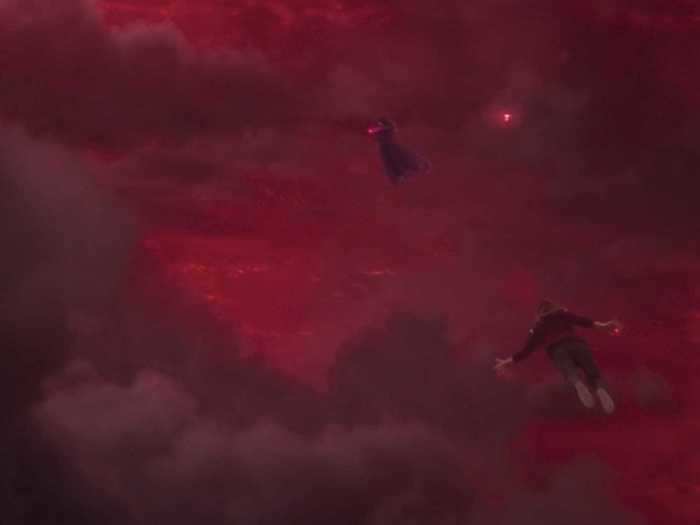
Wanda was able to outsmart her by putting runes around them, preventing Agatha from using her dark magic.
Olsen and Hahn flew around each other while attached to wires.
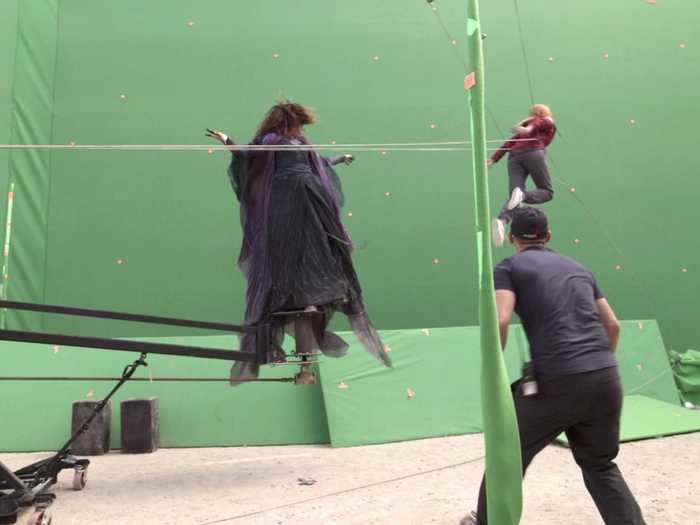
Crew members also assisted in their movement at times. The red sky seen on the finale was digitally created, which is why the actors were surrounded by green screens in footage shown on "Assembled."
Wanda finally transformed into the Scarlet Witch after reabsorbing her powers from Agatha, which led to an explosion.
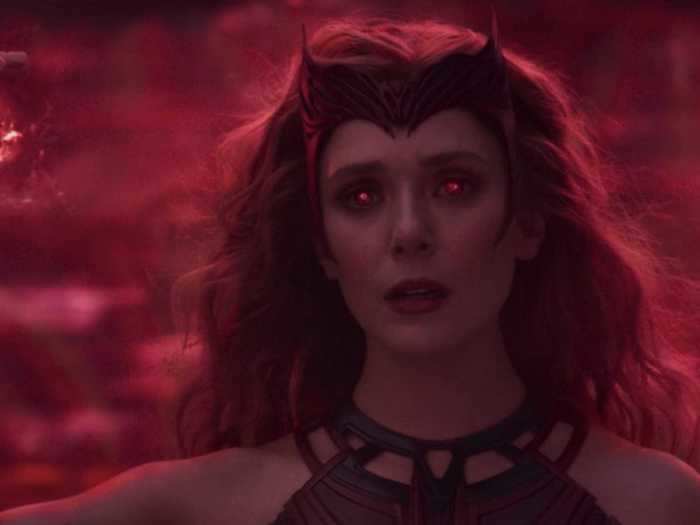
Fans couldn't get enough of the costume, which was inspired by the comics. Olsen even provided input regarding the design.
Behind-the-scenes footage showed that Olsen was in harness when filming the key moment.
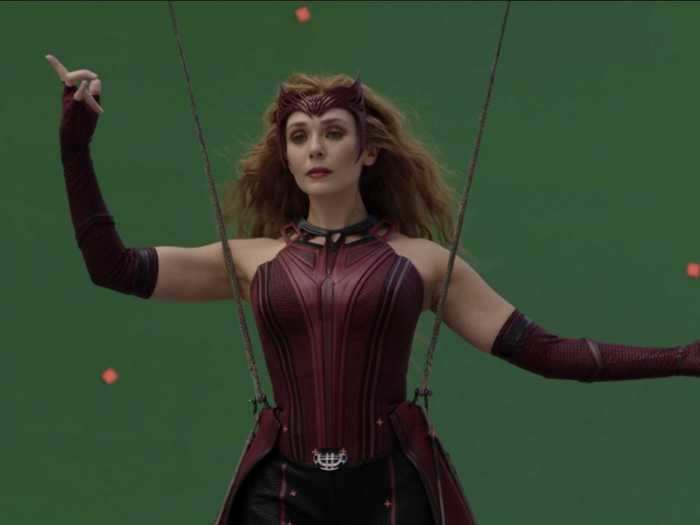
There was also a green screen behind her.
The end credits scene of the finale showed Wanda astral projecting while reading the Darkhold.
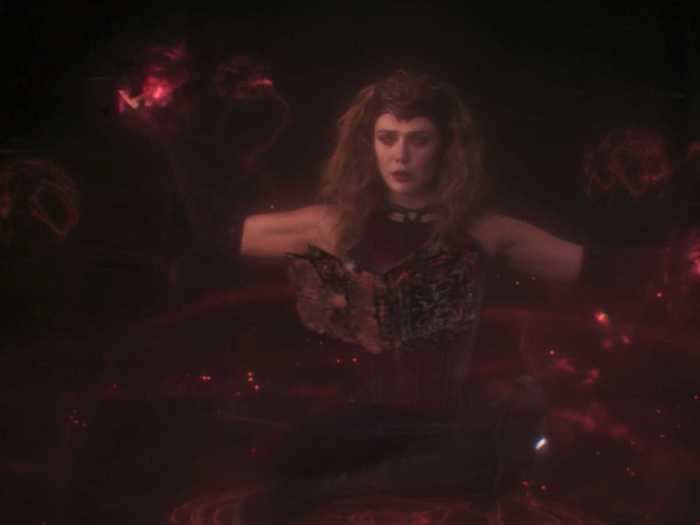
The voices of her sons, Billy and Tommy, were also heard — which alluded to a potential plan to bring them back to life.
Olsen was sitting in a chair, rather than magically floating, while filming the scene.
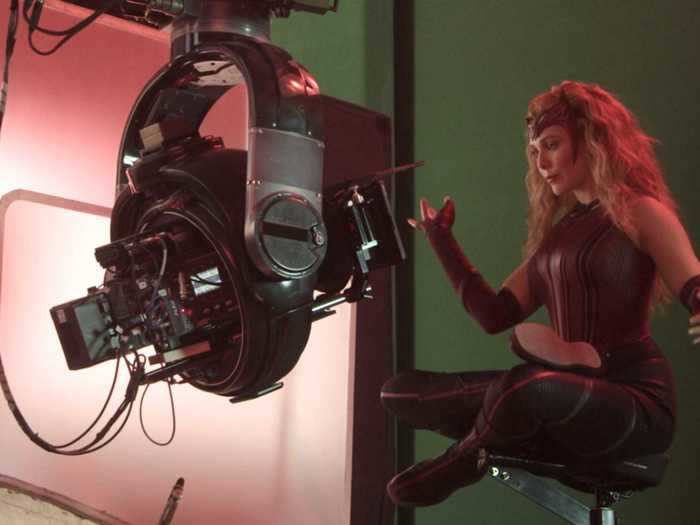
The "Assembled" footage also showed that there was no book placed near the actress, so she pretended as though her character was reading.
READ MORE ARTICLES ON
Popular Right Now
Popular Keywords
Advertisement